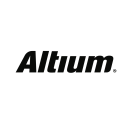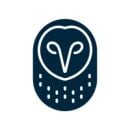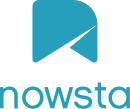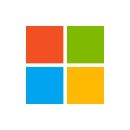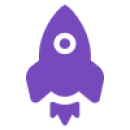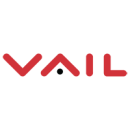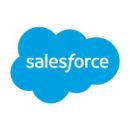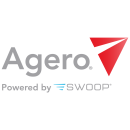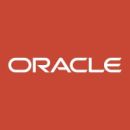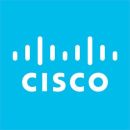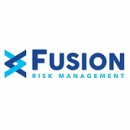Like the rest of us, enterprise software has had to keep up with the times. With many legacy companies, like Microsoft and Oracle, pioneering the space as far back as the 1970s, the industry model has undergone significant growth spurts.
What Is Enterprise Software?
Enterprise software is an umbrella term for computer software designed for use by large companies or organizations. This software can be tailored to the needs of a specific sector — like healthcare, education or manufacturing — or help with tasks common to organizations across sectors, like customer relationship management, marketing, HR and payroll.
Directly buying a product at a brick-and-mortar vendor, then installing it on a network server is considered old fashioned to the modern routine where subscription-based cloud hosting solutions are at-the-ready, downloadable on-demand and instantly accessible online.
Aside from staying relevant, these large-scale solutions, designed to introduce efficiency in the workplace, keep teams connected and on the same page — an essential quality that has surely appreciated in value in today’s world of remote and hybrid work, where nearly 28 million workers in the United States sign on from home.
From automating administrative needs to streamlining day-to-day tasks, the following is a list of software suites offering enterprise-level solutions that have come out on top.
Top Enterprise Software Companies
- Box
- NextRoll
- Salesforce
- Workday
- Zendesk
Top Enterprise Software Companies
Altium has a portfolio of software products built to make electronics design and development quick and efficient. Its offerings include “a comprehensive, digitally integrated electronic design solution for enterprises” that comes with features like schematic design, workflow management and data management.
SpotMe specializes in virtual and hybrid event platforms. The company’s solutions for hosting and organizing events, conferences and meetings are built for enterprise, creating branding and personalized event apps, integrating enterprise systems for insights and compliance, and sparking engagement by enriching audience experiences.
Monte Carlo is an enterprise software company that provides data reliability services. It aims to help users ensure seamless operations and prevent data downtime. The company is fully remote, although it also allows employees to work at coworking spaces or one of its ten global hubs.
Samsara offers a platform that connects with hardware devices to deliver insights and operational visibility, which can help businesses improve safety, efficiency and sustainability across job sites and vehicle fleets. According to Samsara, the technology has been used to digitize approximately 300 million workflows.
Nowsta specializes in providing a nationwide marketplace of contingent labor by partnering with staffing companies. Through its platform, clients can access a diverse pool of qualified workers tailored to their needs, facilitated by automation tools that use market data and company attributes. The company works across a wide range of industries including hospitality, university food services and live events.
Another enterprise SaaS solution, Box is an online, file-sharing and cloud content management service fit for the entire content lifecycle, covering creation, sharing, editing, signature, classification and storage. While offering unlimited storage, custom branding and administrative controls, Box specializes in secure, third-party collaboration.
Madhive offers a self-service platform that television advertisers can use to automate and customize their buying process in a single operating system. It allows advertisers, brands, broadcasters and suppliers to plan, activate and measure their campaigns with more reach, control and simplicity. The company provides its users with targeted audience reports and real-time data monitoring, while saving data onto a private blockchain.
Commerce offers an AI-enabled product suite that provides businesses with a customizable SaaS platform to build and manage online stores through its tools for website creation, product catalog management and payment processing. Users can also gain access to marketing and analytics features to support growth and performance.
Enterprises across industries — from manufacturing to chemical, food to pharmaceutical — use VelocityEHS’s software platform to stay on top of their EHS and ESG programs, whether that entails managing operational risk, tracking air emissions data or recording workplace incidents.
Bridge Legal runs a cloud-based enterprise management planning software for legal teams. The platform is made to be accessible for attorneys, support staff, litigation funders and legal marketers, and has a long list of available tools that can be opted into so that teams are only using the systems that they need. Tools include case management, document management, reporting and analytics, secure communication, automating marketing and collaboration.
LeanIX’s cloud-based Enterprise Architecture Management platform helps companies understand, manage and optimize their IT infrastructure. More than 40 certified partners, from logistics to media, healthcare and retail use LeanIX’s tools to reduce complexity and align their IT investments with their business goals. Founded in 2012, LeanIX is headquartered in Germany with offices all over Europe as well as on the U.S. coasts.
SeatGeek is a mobile ticketing company. In addition to being an aggregator of secondary ticket sales, the company uses its machine learning powered software to serve enterprise clients like major sports teams. Boasting a new software release every two weeks, the company provides enterprise clients with a 24/7 client services team to help them navigate and optimize their use of the technology.
Software company Sanity operates a content management platform that allows businesses like Puma, Spotify and Riot Games to create tailored content and customized workflows. Sanity sets itself apart from other content management software by treating content as data, making it easy for companies to customize existing content across different channels as needed.
Mirakl is an enterprise software company specializing in marketplace and dropship solutions. Its API-first SaaS platform allows businesses to launch and manage their own online marketplaces. This technology empowers major brands, retailers and B2B organizations to expand their commerce operations by connecting millions of buyers and sellers, helping them to scale and thrive in the digital economy.
Osano builds technology that supports privacy compliance for businesses. Its platform comes with features for managing cookie consent, data mapping and vendor risk management. The company says more than 5,000 customers use its automation solutions to save time and prevent errors.
Motive offers IoT products with applications for several industries, including construction, agriculture, passenger transit and logistics. The company’s Integrated Operations Platform is an enterprise-grade fleet management solution that unifies data from IoT devices to help businesses improve productivity.
With more than 45 applications in its product suite, Zoho’s CRM software is preferred for its clean, intuitive interface, making it easy to learn, as well as its prioritization of user privacy. Zoho is used by more than 250,000 businesses across 180 countries to facilitate their customer relations, according to its website.
PagerDuty provides enterprises with digital operations management solutions. Its offerings leverage artificial intelligence to enable automations that reduce risk and improve efficiency. The technology is designed to support businesses across industries such as retail, financial services and healthcare, covering use cases that range from streamlining security incident response to optimizing data usability.
Logistics specialist Bringg uses software to optimize the way goods travel from manufacturers to packagers to customers. It handles everything from the tech that powers logistics systems and coordinates the hand off to the customer at their front door. The company works with enterprise retailers to help them manage and grow every facet of their delivery processes.
Applecart’s platform helps brands ensure their content reaches the right decision makers. Organizations identify the stakeholders they want to connect with so Applecart can build audiences designed to target them and the people in their network who can influence them. The company's solutions support areas like brand marketing, crisis communications, employee recruitment and enterprise sales.
No shock here. The world’s largest software maker has established a legacy brand that stays relevant by launching enterprise technology — ranging from Microsoft Teams, Office 365, Outlook and Skype — that consistently lands as the universal standard in software solutions. Microsoft 365 links the company’s esteemed user-friendly interfaces to enterprise functionality, unlocking seamless operations that enable ease with inter-department communication, data sharing and predictive analytics.
Smartling is a language translation platform that uses AI and professional language services. The cloud-based platform makes it easy for businesses to quickly and reliably translate their marketing and product information to customers worldwide. It can also be used for many other kinds of content, from training material to legal documents.
Eventus Solutions Group offers strategy, consulting and fully managed solutions to enterprises, which includes enterprise trade surveillance that monitors financial transactions to avoid regulatory problems in the financial sector. It works with clients to onboard them directly, with the goal of using innovation and technology to help them deliver outstanding customer experiences. The company’s software uses AI to scan for market manipulations and monitor trading algorithms.
Dropbox provides cloud-based solutions for storing, sharing and collaborating on files, serving millions of users worldwide. Its AI-powered tools work to enhance productivity for teams with features like universal search and one-click content control. Dropbox adopted a virtual-first working model in 2020, hiring across the U.S. and around the world.
Cloud-based commerce platform commercetools offers a suite of e-commerce tools that businesses can use for sales transactions. It has digital storefront products geared toward B2B, B2C and D2C businesses, all of which are built using a model known as “headless commerce,” which separates the functions of the software’s frontend (the aspects the customer sees and interacts with) and its backend (the data layer that powers operations).
CPI OpenFox provides advanced software solutions to the law enforcement industry. The OpenFox suite of products includes an information sharing system, an offender management system, background check software, database software and a sex offender registry system. Concentrating exclusively on the law enforcement sector allows OpenFox to nurture a deep understanding of its unique needs and challenges.
Clari has a SaaS revenue platform for the enterprise software space. This allows client companies to predict, oversee and increase their revenue in a predictable manner. The company boasts that solutions drive operational efficiency for global enterprises.
LogRocket provides a SaaS product that handles software issues like bugs and UX problems. Using AI, it monitors client software, identifies product issues, quantifies their impact and then provides session replays so clients can pinpoint the origins of the problems. The LogRocket enterprise-level pricing plan covers streaming data export, user feedback and other premium features.
This cloud-based software vendor differentiates itself by its built-in flexibility to grow with a company. Workday’s SaaS model allows for this human resources information management system to not only act as a centralized repository for employee information but also offer a comprehensive suite, complete with applications that help automate day-to-day tasks.
B2B software company Aircall makes a phone system for businesses that serves as an optimized call center, syncing and sharing information between different communication modalities, including CRM systems and virtual customer service desks. The service, which is fully cloud-based, is built for sales and support teams to use in providing customer support to clients.
Airwallex is a global payments and financial platform with a proprietary network that powers instant local accounts and rapid fund transfers. It enables multi-currency payments, embedded finance APIs and AI-powered spend management. The company aims to help its client companies scale and operate easily across currencies, markets and borders.
PatientPoint provides the healthcare industry with software solutions to improve outcomes at scale, enhance patient engagement and streamline provider workflows. Its cloud-hosted architecture enables scalability for remote and hybrid healthcare environments.
Fintech company Pinwheel is a payroll connectivity API platform. Companies use its platform to manage direct deposits at scale, easing the task of facilitating direct deposits for large numbers of employees or customers. According to the company, it’s processed more than $10 billion in deposits across 10 million transactions.
Granica aims to help enterprise companies build and manage high quality data for AI at scale. Its platform relies on cloud-prem architecture and typically processes user data in the background, running within the cloud environment without requiring application integration.
DataGrail is a data privacy company that offers privacy compliance and regulation management services through its own platform. From its privacy control center, the legal, security and executive arms of enterprise client companies can manage and control privacy processes. The software integrates with Shopify, Salesforce, Zendesk and over 2,000 other enterprise software platforms and products.
Clay offers relationship management software that enables users to maintain and monitor their network of personal and professional relationships. Some of its features include relationship analytics to give users insights to relationship health, automated notifications to touch base and reminders about social media posts.
Snyk builds tools to help software professionals integrate security throughout the development lifecycle. Its platform helps application and cloud developers identify and quickly address code vulnerabilities to ensure they’re digital products are secure. The company says its customers are able to save money by mitigating risk and work more efficiently by automating vulnerability remediation.
Altana’s AI platform helps businesses and governments manage their supply chains by providing visibility into supplier and distribution networks, enabling users to trace product origins, anticipate disruptions and evaluate environmental and labor impacts. The company has a global presence, supporting customers through offices located around the world.
NinjaOne is an IT management platform that can be operated from a simple dashboard. It provides endpoint and patch management for IT departments and managed service providers (MSPs), with ticketing, a helpdesk, endpoint security and remote support. NinjaOne also gives its customers free onboarding and training.
This CRM tool is a one-stop shop for sales teams of all sizes. With easy-to-use, customizable features, Zendesk’s intuitive interface assists an organization’s scaling operations with standout applications that track support requests, swiftly attend to customer needs and monitor employee effectiveness.
Formerly G Suite, Google Workspace rivals Microsoft Office for the top spot with its cloud-based ecosphere built for collaboration. Google’s approach pioneered on-the-go working with autosave features, real-time sharing, remote co-editing and anytime accessibility to the latest versions of a file.
Vail Systems, Inc. is a communications company that provides network communications for voice interactions (i.e., telephone calls). Working with customer service call centers, it streamlines the customer experience through features like in-app calling and automated authentication. Its natural language processing applications work to analyze conversational content with the aim of improving customer service outcomes.
Pluralsight offers a professional development platform with curated content developed by vetted technology experts. The software includes skill assessments and hands-on, immersive learning experiences designed to help individuals build skills faster. Thousands of companies, government organizations and individuals around the world rely on the platform to support critical technology skill development.
The AI-powered Celonis platform evaluates a company’s processes to provide increased visibility throughout the organization so leaders can identify and capitalize on opportunities for improvement, from resolving supply chain issues to efficiently pursuing sustainability goals. Its process mining and intelligence technology supports industries like banking, healthcare, energy, manufacturing and insurance.
CSC has international reach, providing businesses with services and solutions that support operations and compliance across more than 140 jurisdictions. The company’s offerings include software products for overseeing important business aspects like tax obligations, entity management and domain security.
Salesforce is a name ubiquitous in healthcare, finance, life sciences, automotive, media, retail, manufacturing and communications industries that is best known for its world-class, on-demand CRM solutions. Salesforce’s archive of features includes a contact filing system, which shares likeness to a digital rolodex, as well as an intuitive, smartphone-friendly dashboard. This platform simplifies team integration, enabling a company’s marketing, sales, commerce, service and IT departments to work as one.
Parsec Automation aims to simplify manufacturing automation management. It developed TrakSYS, a manufacturing execution system platform for streamlining operations management, to support real-time, data-driven industrial environments.
CreatorIQ provides cloud solutions for global enterprises to manage influencer campaigns. Its Enterprise Creator Cloud allows businesses to discover creators, streamline end-to-end workflows, ensure brand safety and drive meaningful management. CreatorIQ’s clients include CVS, Dell, Airbnb and Disney. The company was founded in 2014 and has its headquarters in Culver City, California.
San Francisco-based Superhuman offers an email client designed for productivity. The platform includes a streamlined interface, keyboard shortcuts and features built to make email management more efficient. Superhuman’s platform is designed for teams that use Google and Outlook, and is available in Enterprise Grade, which includes a dedicated account team, enterprise-level protection and support.
Agero offers software-enabled technology and driver safety services that aim to push the limits of big data and transform the whole driving experience by making it smarter and safer. It partners with automotive companies and insurance companies to develop roadside assistance frameworks that make accident management and towing more efficient. The company also provides post-warranty benefits programs and electric vehicle support.
This adtech, e-commerce and marketing technology platform “gathers data, delivers reliable insights, and provides businesses with approachable tools to target buyers in strategic ways,” according to its website. In order to do so, NextRoll employs machine learning and integrated data protocols.
Outset AI offers an AI-powered all-in-one research platform. Its technology conducts user interviews and reveals insights into consumer preferences. This allows its clients, including names like Hubspot, Coinbase and Uber, to keep research teams lean.
Perchwell is a real estate technology company that offers data and workflow solutions to make business management more efficient. Its MLS, or multiple listing service, platform allows integration with third-party data sets and comes with features for tailoring user roles and permissions. The company offers webinars and training sessions to help customers get the most out of its technology.
Active since the late 1970s, Oracle is widely known for its multi-model database management system made possible through its deeply integrated hardware and software solutions. Now offering integrated cloud-based operations, the company has diversified itself with software-, platform- and infrastructure-as-a-service offerings. Oracle’s enterprise resource planning software assists finance, human resource, supply chain and sales teams with an assortment of features, most notably an exceptional disaster recovery protocol and iron-clad data security.
Zello is a software company offering an app that turns a user’s smartphone, laptop, tablet or desktop computer into a walkie-talkie with push-to-talk functionality. Hurricane rescuers, for example, can rely on the app to work when phone lines are down. The app also allows users to talk without paying for cellular data. For enterprise clients, the Zello app lets teams stay in constant communication regardless of conditions, with a historical uptime of 99.99 percent, according to the Zello website.
Companies employ Cisco’s enterprise software to build out a network infrastructure that can connect and monitor devices, secure and automate operations as well as compute and manage data. Since the company’s 1984 inception, Cisco has led in the development of Internet Protocol-based networking technologies.
Fusion Risk Management’s cloud-based software for business continuity risk management, IT disaster recovery and crisis management helps companies build resilient organizations. Its Fusion Framework System, built on the Salesforce Lightning Platform, enables clients to access their programs securely anytime, from anywhere. The company is based in Chicago.
A software haven for creatives, Adobe provides digital marketing and media solutions across its extensive library, with more than 20 applications in counting. The technology built into its flagship products, such as Adobe Photoshop and Adobe Premiere, are considered an industry standard among photographers, editors, graphic and web designers as well as filmmakers, to name a few.
This enterprise SaaS platform capitalizes on “keeping it simple” to stand out when it comes to marketing, sales, help-desk support and information technology solutions. Freshworks’ product suite offers beginner-friendly pricing and usability, opting to provide just enough information rather than overwhelming users, and ranges from customer relationship management software to recruitment tools and customer support help-desk software.
Bectran’s SaaS platform offers credit, collection and accounts receivable solutions, helping businesses of all sizes automate their finance departments. Founded in 2010 and headquartered just outside Chicago, Bectran’s mission is to reshape the credit industry and disrupt traditional processes. More than 2,000 businesses use Bectran’s cloud-based platform, cutting their cost of collections by as much as 60-90 percent.
ServiceNow’s cloud-based SaaS platform delivers digital workflows designed to boost productivity and eliminate human error by automating repetitive tasks. Its platform caters to technical management support, and is of common use in IT operations management and IT business management.
Atlassian’s software solutions allow organizations of all sizes to optimize workflows and enable collaboration for teams like software development, marketing and finance. Its offerings covers everything from product roadmapping and improving code quality to real-time incident communication and identity management. Atlassian is a global company with employees spread across more than a dozen countries.
Hi Marley builds technology to support property and casualty insurance providers, helping them deliver a quality customer experience. The Hi Marley Insurance Cloud includes collaboration tools, workflow automation capabilities and security features to protect customer data. These solutions are designed to help adjusters effectively engage and support customers.
GitLab’s DevSecOps platform leverages AI to improve efficiency across the software development lifecycle so teams can deliver quality digital products faster. Its features cover source code management, security and compliance, end-to-end analytics and other capabilities to improve productivity and collaboration across teams. GitLab’s technology solutions serves a range of business sizes, from startups to major enterprises.


